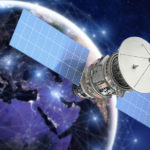What is an instrument landing system (ILS) and how does it works?
What is an instrument landing system (ILS) and how does it works?
Instrument landing system : The International Telecommunication Union defines it as a radio navigation system which provides aircraft with horizontal and vertical guidance just before and during landing and, at certain fixed points, indicates the distance to the reference point of landing.
Instrument landing system is used for lateral and vertical guidance for a precision approach on a runway. It consists of the following components,
-
- Localizer
- Glide path
- Markers
- DME
- Approach lighting system
- Runway visual range
Localizer: Localizer sends a VHF carrier signal of 90 Hz and 150 Hz sideband signals which the aircraft instrument determines as an left and right of the centerline of the runway.
Glide path: Glide path is used to give vertical guidance. It is located 750 to 1250 feet down the runway threshold and 400 to 600 ft off the runway centre line. Glide slope sends a UHF carrier signal with 90 Hz and 150 Hz sideband frequencies which aircraft instruments determine as above or below the desired glide path of the aircraft.
Markers: Markers are outer and middle markers. Marker helps the pilot to make a positive position fix on the localizer. It has a carrier frequency of 75 Hz. When the transmission from the marker beacon is received by the aircraft instrument a tone is audible to the pilot and an indicator is activated.
DME: it is distance measuring equipment and is used to give a slant distance with respect to the touch down point of the aircraft.
Approach lighting system : It consists of approaching light system, sequenced flashing light, touchdown zone lights and centre line lights.
Runway visual range: It is the distance at when a pilot of an aircraft can see surface markings on the runway. It determines operational visual aids of the airport.






